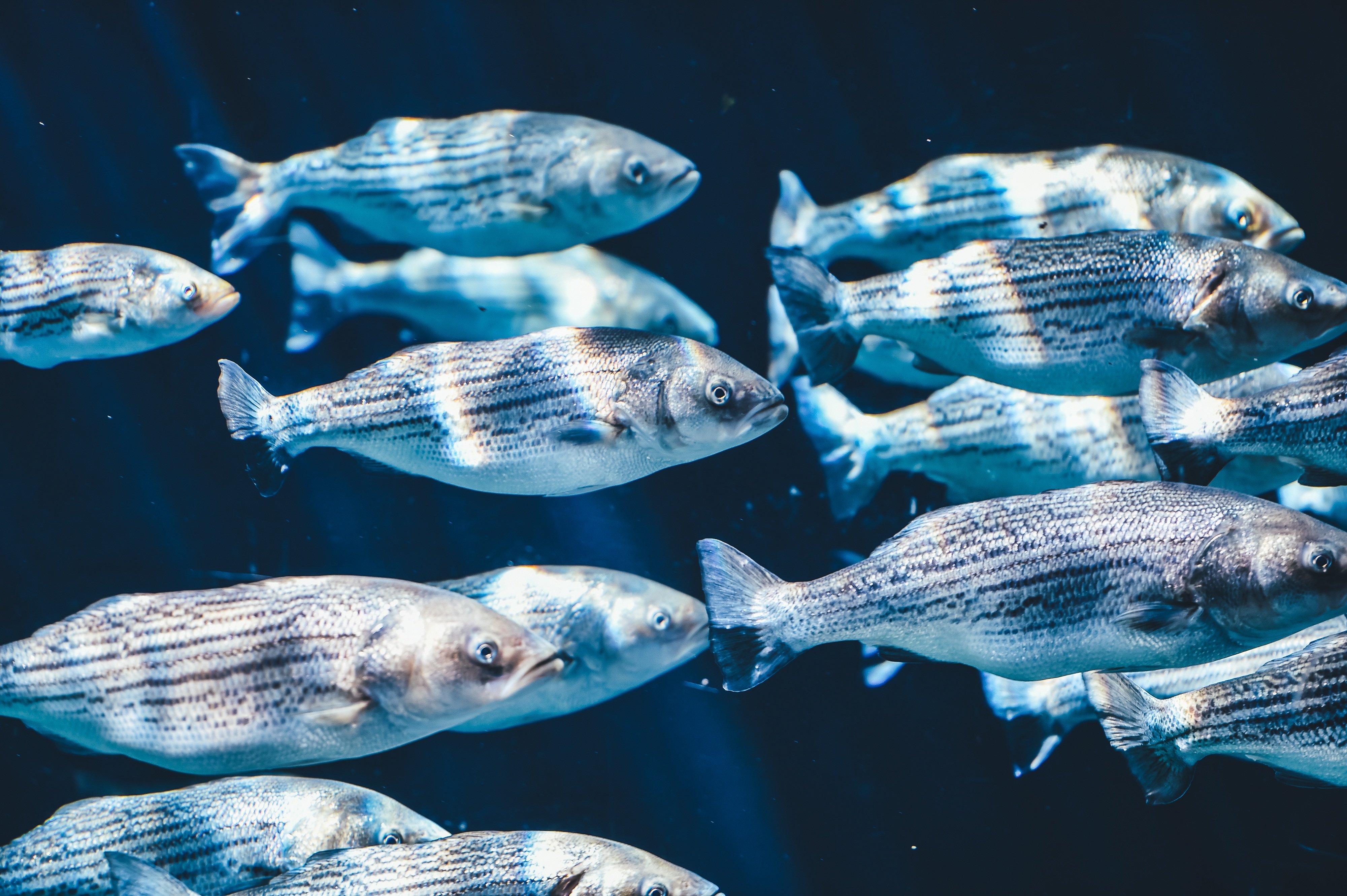As part of the FishSenseWell project, a consortium comprising Fraunhofer IZFP and the Saarbrücken-based SEAWATER Cubes GmbH is conducting a study to provide an overview of all signal variables from recirculating aquaculture systems (RAS). Their aim here is to systematically search for additional, indirect measurement variables, find redundancies, reduce the number of sensors in the system and, as far as possible, replace expensive or complex measuring principles with simpler measurement variables.
Recirculating aquaculture systems contain a large number of sensors for controlling the system. Each of these data sources serves a specific purpose, namely to record a concretely measurable variable. Typically, these sensors record pH, salinity, oxygen content, temperature, redox potential, turbidity, carbon dioxide, nitrate, nitrite, ammonia and phosphate. They allow the direct monitoring of the system operation and can be used by the operator to control and regulate the system. Carrying out process corrections requires immense specialist knowledge and, above all, experience. It is possible to define target ranges for the individual values; however, these values influence each other. Factors such as water quality, fish welfare and the system’s operating efficiency are not always equally influenced by each parameter. Depending on the current sensor values, the urgency to correct for the other parameters can vary. For new operators of aquaculture facilities, this represents a major technical and economic hurdle.
One important element for future sustainable food production is transparent, high-quality local production in recirculating aquaculture systems — this also helps ensure a healthy, balanced diet. However, the advantage posed by the limited water exchange with the environment must be safeguarded by high-tech water treatment processes. This requires the recording of a high number of water parameters. For this reason, the parameters used to determine water quality in classic aquaculture are no longer sufficient in this case.
Discovering indirect measurement variables holds enormous potential for increasing the operating efficiency of aquaculture systems, as it would allow unstable, pollutive and complex measuring procedures to be replaced and the number of required sensors to be reduced. Given the complexity of the process, however, this potential has yet to be unlocked. The following steps are taken to systematize the indirect determination of production-relevant system variables, as well as the potential they offer and appropriate recommendations for action:
1. Developing a machine learning method for process evaluation and deriving dependencies on the basis of the indirect determination of nitrite.
2. Expanding autonomous learning processes to identify further indirectly correlated measurement variables based on data from the ongoing plant operation and observations and direct actions by experts at SEAWATER Cubes GmbH.
This systematic approach will allow the scientists participating in the preliminary study to conduct targeted research aimed at optimizing recirculating aquaculture systems so that they ultimately become intelligent and autonomous. This will help make the technology accessible to a large number of manufacturing companies in the future, while at the same time maintaining a high degree of environmental compatibility.
 Fraunhofer Institute for Nondestructive Testing IZFP
Fraunhofer Institute for Nondestructive Testing IZFP 